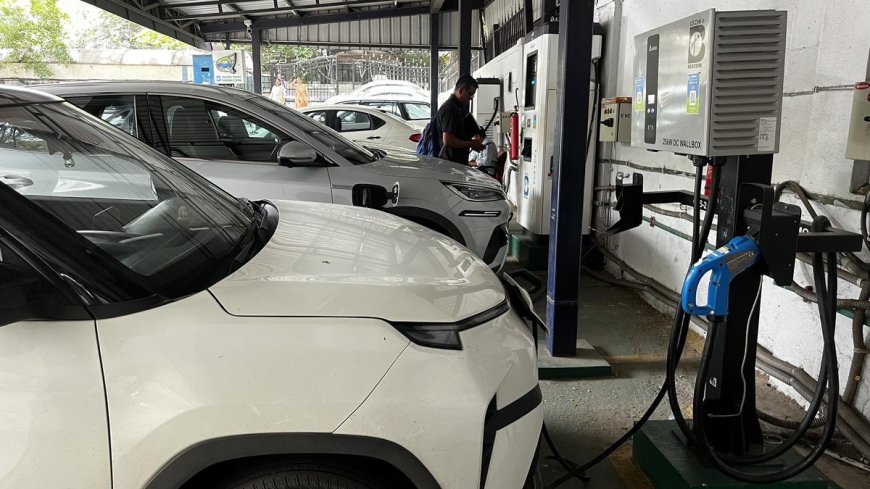What is India’s latest approach to localising EV manufacturing?

What is India’s Latest Approach to Localising EV Manufacturing?
Breaking News, Daily Updates & Exclusive Stories - asarkari
In a significant move to enhance its electric vehicle (EV) manufacturing capabilities, India has introduced a new scheme aimed specifically at localising the production of electric passenger cars. This initiative is crucial for bolstering the country's aspirations to become a global EV powerhouse amidst the rising demand for sustainable transportation solutions.
The Scheme Explained
At the heart of this initiative lies the provision to reduce customs duty on the import of ready-to-ship completely assembled electric four-wheelers to a noteworthy 15%. This reduction is intended to lower costs and stimulate competition within the local market, thereby encouraging manufacturers to scale up their production capacities domestically.
This strategic approach can be viewed as a dual benefit: it not only makes electric vehicles more accessible to consumers but also aligns with India’s commitment to environmental sustainability. By fostering the local EV industry, the government aims to reduce its dependency on imported automobiles and components, enhancing self-reliance.
Impact on the Market
This policy change could have a profound impact on both the domestic and international markets. For domestic companies, the lowered import duties may provide a temporary cushion, allowing them to innovate and improve their offerings. International manufacturers, on the other hand, might find India to be a more attractive destination for their investments due to the favorable import conditions.
Industry experts believe that this move will attract foreign direct investment (FDI) in the Indian automotive sector, ultimately positioning the country as one of the leading manufacturers of electric vehicles globally. The scheme could also expedite the transition of existing car manufacturers towards EV production, thereby supporting the government's broader vision of moving towards a carbon-neutral future.
Challenges Ahead
While the initiative presents numerous opportunities, it is essential to acknowledge the challenges that lie ahead. The transition to EV manufacturing would require significant investment in infrastructure, such as charging stations, supply chain logistics, and skilled workforce development. Moreover, the Indian market needs to ensure that it has the necessary raw materials, like lithium and cobalt, to support this transition.
Additionally, companies will have to navigate the global supply chain disruptions exacerbated by the COVID-19 pandemic, which may hinder the swift implementation of this scheme. Hence, a collaborative effort between the government and the private sector will be vital in overcoming these hurdles.
Conclusion
India’s latest approach to localising EV manufacturing is a commendable step toward fostering a sustainable automotive ecosystem. With reduced customs duties, there is potential for significant growth in local manufacturing, attracting investments, and creating job opportunities. However, for this initiative to be successful, concerted efforts will be required to address the challenges at hand. As we stride toward a greener future, the evolution of India's electric vehicle landscape appears promising.
For more up-to-date news and information on such topics, visit asarkari.com.
Written by: Priya Sharma, Neha Verma, and Aditi Gupta, team asarkari.
Keywords:
electric vehicle manufacturing in India, EV manufacturing scheme, customs duty reduction, local automotive industry, electric cars in India, sustainable transport, self-reliance in automotive, foreign direct investment in IndiaWhat's Your Reaction?
 Like
0
Like
0
 Dislike
0
Dislike
0
 Love
0
Love
0
 Funny
0
Funny
0
 Angry
0
Angry
0
 Sad
0
Sad
0
 Wow
0
Wow
0











































